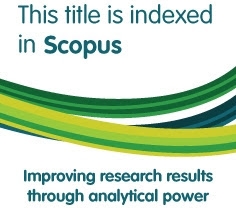The Muhammadiyyah Da‘wah and Allocative Politics in the New Order Indonesia
Abstract
The change of political Islam to proselytizing is the result of cultural introspection, which is a result of the unbalanced relationship between Islam and the state: Islam is at the inferior position while the country is in a superior position. The Islamic position by itself limit the range of motion activities to perform publicly. Meanwhile, the superiority of the state, much less to encourage Muslims to present themselves in ways more subtle and careful. This inequality then gave birth to a form of political practice other: allocative politics. Here the political activity emerged as an attempt to enter the values of Islam into the political development process based on the results of a national consensus ideology: Pancasila. Thus, it could mean repolitisasi allocative political Islam within the framework of Pancasila.
Full Text:
PDFDOI: https://doi.org/10.15408/sdi.v2i2.834 Abstract - 0 PDF - 0
Refbacks
- There are currently no refbacks.

All publication by Studia Islamika are licensed under a Creative Commons Attribution-NonCommercial 4.0 International License.
Studia Islamika, ISSN: 0215-0492, e-ISSN: 2355-6145
View My Stats
